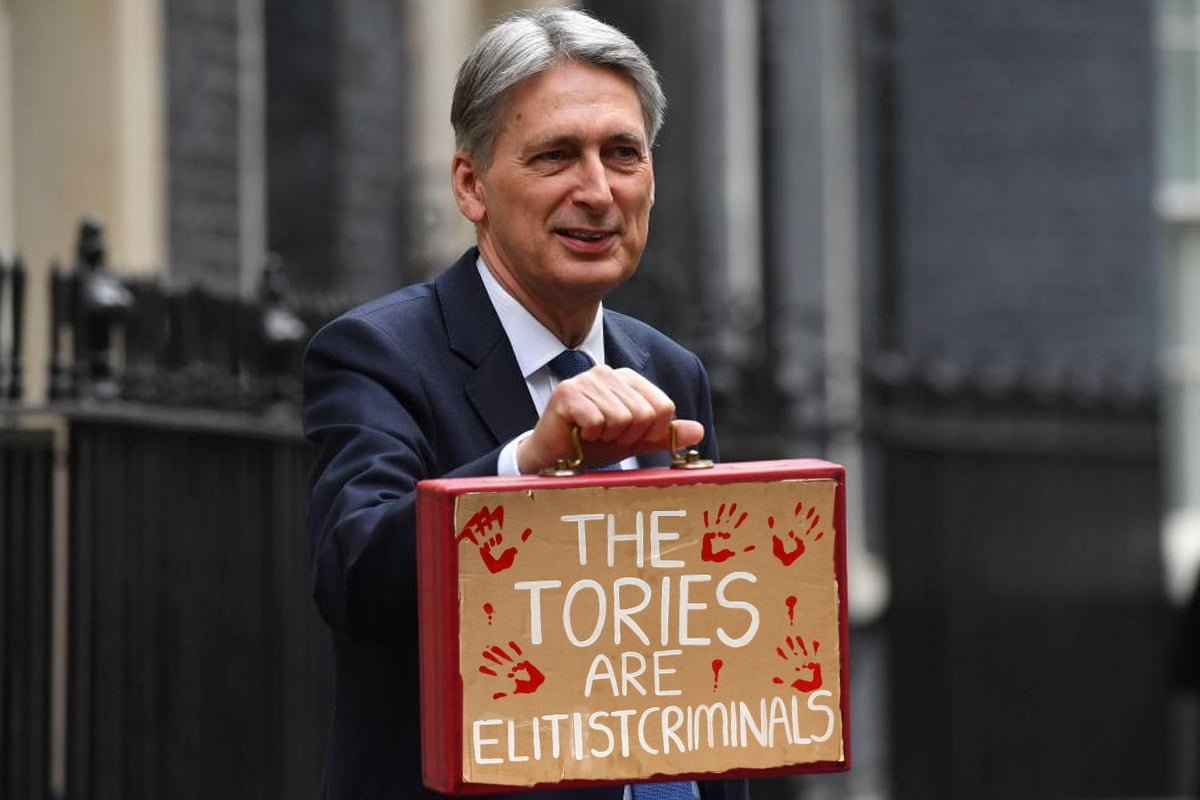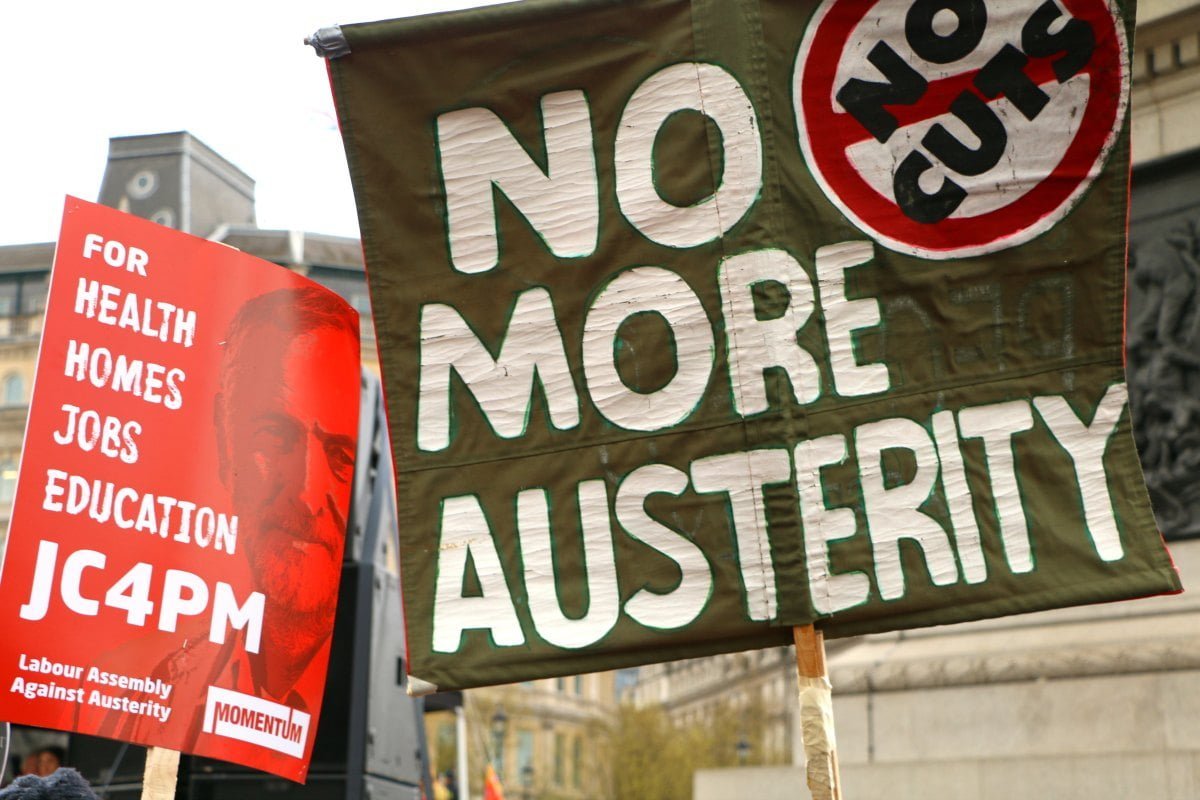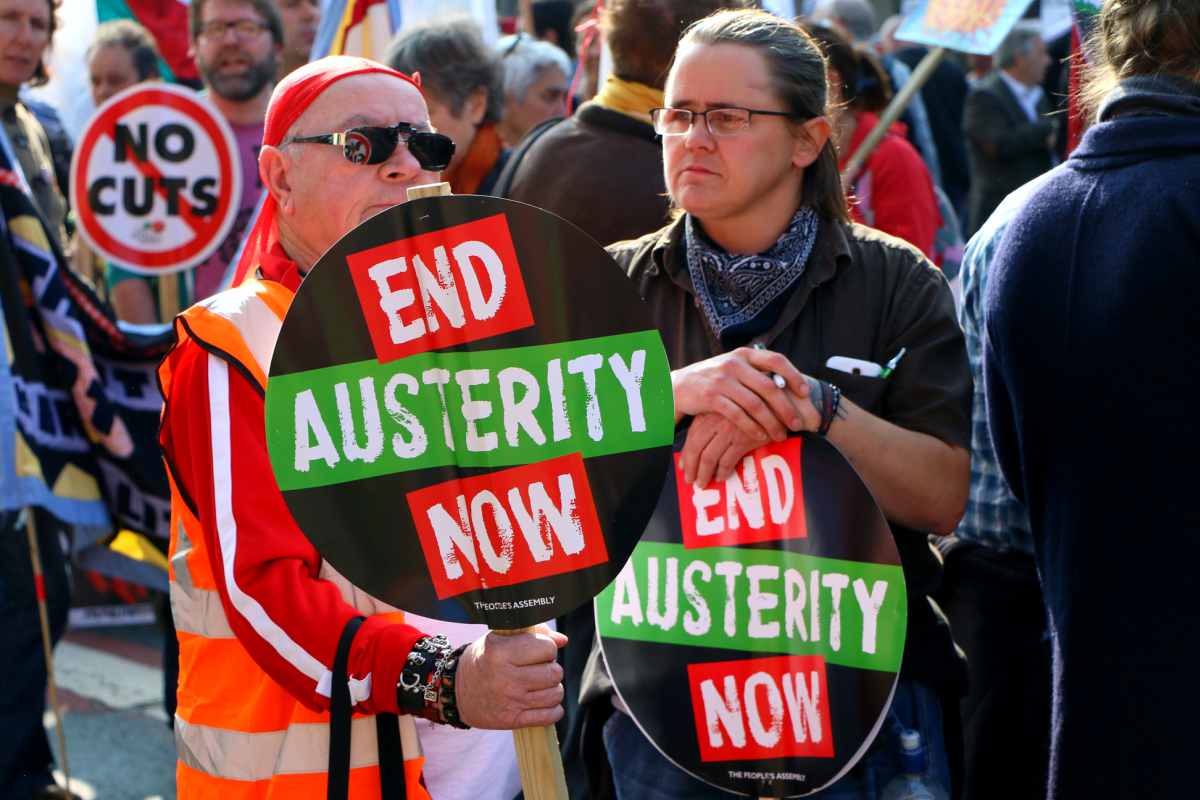Tory austerity means that local council budgets have been cut to the bone. But the wealth exists to fund public services.
Councils across England are running on backup emergency funds, according to a recent analysis by the Financial Times. The FT found that 169 of England’s 353 local authorities (48%) recorded real-term falls in their reserves between 2015-17.
Out of those councils that provide social care, a shocking 70% ran down their reserves during this period. In one of the worst cases, Northamptonshire county council had to be taken over by a crisis team led by Sajid Javid, the minister for local government, after spending 62% of its reserves in two years. The council told the FT that this expenditure was used in part “to mitigate the need for higher spending in key areas such as social care”.
These reserves are intended for emergency spending – for dealing with immediate crises such as flooding or natural disasters – or for paying for one-off costs, such as large-scale infrastructure investments or service upgrades. That they are instead being depleted, in an entirely unsustainable manner, by the daily running costs of local authorities, is extremely alarming and speaks to the depth of the socio-economic crisis.
Cut to the bone
 At the root of this crisis is a spectacular fall in central government funding for local authorities. This has been reduced in real terms by 49% between 2010-11 and 2017-18, according to the National Audit Office, parliament’s spending watchdog.
At the root of this crisis is a spectacular fall in central government funding for local authorities. This has been reduced in real terms by 49% between 2010-11 and 2017-18, according to the National Audit Office, parliament’s spending watchdog.
Councils have responded to this with massive cuts to local budgets. These hit young people, women and the vulnerable the hardest.
According to the FT, councils initially planned to make cuts as early as possible in order to ring-fence their reserve funds. But these latest figures are a clear sign that what has come so far has not been enough.
It doesn’t take a genius to guess how Sajid Javid’s crisis team responded to the chaos in Northamptonshire: they imposed emergency spending controls, freezing all new spending, with the exception of safeguarding vulnerable people and statutory services.
Council tax rises – which impact the poor most of all – have also been unable to make up the shortfall. In Reading, “the cost of caring and protecting the most vulnerable adults and children…will rise by at least £10m next year”, according to council leader Jo Lovelock.
This is more than double what a 5.99% council tax increase will raise, the maximum amount that local authorities can raise council tax without a local referendum. Lovelock, like other council leaders, has also cited an increase in demand for services targeted at the most vulnerable, indicating the depth of the crisis.
Though cuts are by-and-large the greatest cause of this crisis, in at least one case the scandal of outsourcing is at least partly to blame. In Thurrock, Essex, the Tory-led council reported the biggest fall in reserves, with a drop of 65%. According to council leaders, the fall is largely the result of paying to get out of a services contract with outsourcing group Serco five years early in 2015.
Throw away the dented shield
 By 2020, council budgets are forecast to have been cut by 77% since 2010-11. When Rosa Luxemburg wrote that we have a choice between ‘socialism and barbarism’, this was exactly the sort of thing she was referring to. We have all the resources to look after the vulnerable in our society, yet these cuts will leave them to suffer without support.
By 2020, council budgets are forecast to have been cut by 77% since 2010-11. When Rosa Luxemburg wrote that we have a choice between ‘socialism and barbarism’, this was exactly the sort of thing she was referring to. We have all the resources to look after the vulnerable in our society, yet these cuts will leave them to suffer without support.
In the council elections next month, Corbyn’s Labour Party should throw away the ‘dented shield’ approach of accepting Tory cuts. Instead, we need a mass campaign of refusal to pass on this brutal Tory austerity to local councils.
Labour councils should defy Tory budgets and launch a mass campaign, at both local and national levels, for proper funding for local services. This should be linked to a drive from across the labour movement to bring down this hated Tory government.
But Corbyn still has a serious question to answer: where is the money going to come from? At present, nobody seems to know.
According to several figures – ranging from Jonathan Carr-West, head of the Local Government Information Unit, to Lord Porter, Tory chairman of the Local Government Association – nobody has an answer stretching beyond 2020. In the 2019-20 budgetary year, almost half of all councils – 168 in total – will receive no core central government funding whatsoever.
We have an answer though: nationalise the banks, expropriate the bosses, and take back the hoarded wealth of big business – wealth that they make from exploitation the labour of the working class. Under a socialist planned economy, we could invest this enormous wealth in our councils, our public services, and our futures.






